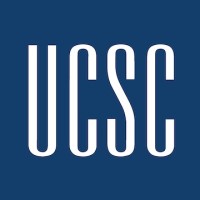Bachelor of Arts in Global Economics (Bachelors)
UC Santa Cruz
Santa Cruz, CA
Global economics is an economics major focusing on global issues with an interdisciplinary element. It is designed to prepare students to understand and participate in the global economy; the program aims to deepen the student’s knowledge of economics within a culturally and linguistically diverse world. The major is particularly useful to students contemplating careers at home or overseas in international relations, in international business, or with international organizations. Hence the major requires overseas study, regional area study, and second-language proficiency in addition to the basic economics requirements and additional emphasis in international economics.
Kết quả học tập của chương trình
Program learning outcomes for economics, economics and mathematics, business management economics, and global economics majors:
✔ Critical Thinking Skills: Students are expected to be able to apply economic analysis to everyday problems in real world situations, to understand current events and evaluate specific policy proposals, and to evaluate the role played by assumptions in arguments that reach different conclusions to a specific economic or policy problem.
✔ Quantitative Reasoning Skills: Students are expected to understand how to use empirical evidence to evaluate the validity of an economic argument, use statistical methodology, interpret statistical results, and conduct appropriate statistical analysis of data.
✔ Problem-Solving Skills: Students are expected to be able to solve problems that have clear solutions and to address problems that do not have clear answers and explain conditions under which these solutions may be correct.
✔ Specialized Knowledge and Application of Skills: Students are expected to develop critical and quantitative thinking skills specific to business and accounting.
✔ Communication Skills: Students are expected to be able to communicate effectively in written, oral, and graphical form about specific issues, and to formulate well-organized written arguments that state assumptions and hypotheses supported by evidence.













